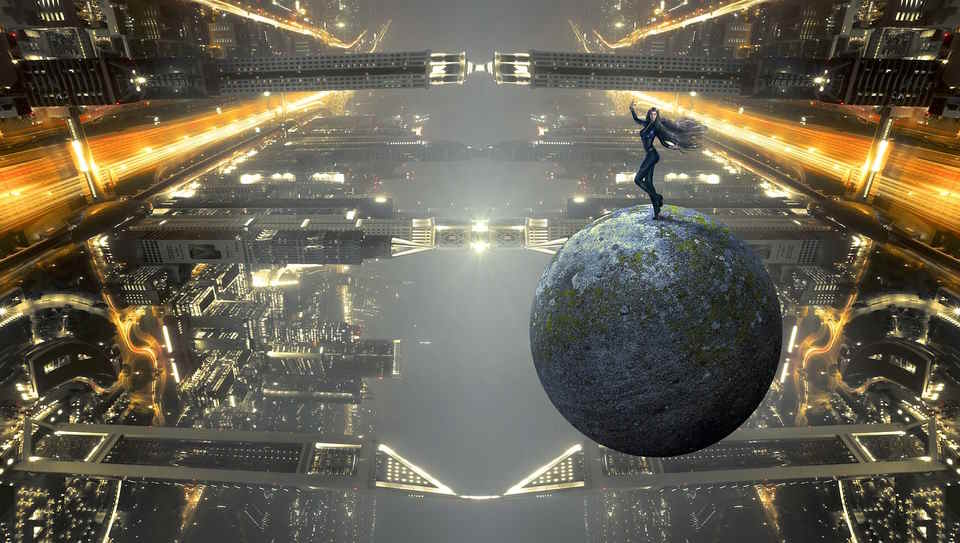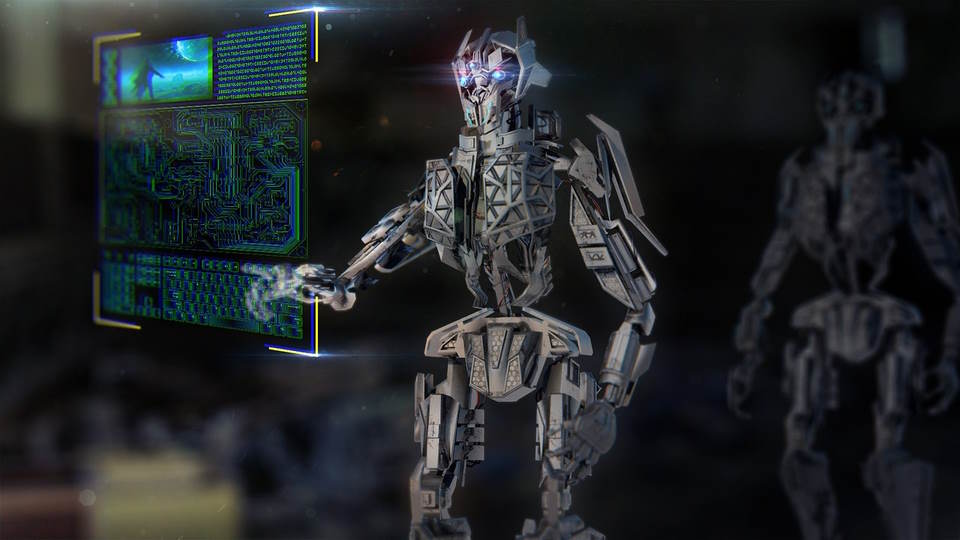Welcome, technology enthusiasts! Have you ever wondered if the futuristic gadgets and gizmos you see in science fiction movies and television shows could become a reality in our lifetime? Well, you’re not alone! In fact, many of the technologies we use today were originally inspired by the imaginations of science fiction writers. Writers like Ray Bradbury and H.G. Wells have predicted some of the most innovative technologies of our time, and their impact on the tech industry cannot be overlooked. We will explore the fascinating relationship between science fiction and technology, and how one influences the other. So, sit tight and get ready to dive into the world of science fiction and technology!
Introduction

Science fiction writers have long been known for their ability to predict technological advancements that eventually came into existence. These writers have a unique ability to envision things that do not yet exist. One of the most famous examples of a science fiction writer predicting technology is Jules Verne’s book “From the Earth to the Moon,” published in 1865. In this book, Verne predicted a spacecraft launch from Florida, a moon landing, and the existence of weightlessness. Interestingly, almost a century later, these predictions came true when the Apollo 11 mission successfully landed on the moon in 1969.
Another famous science fiction writer who accurately predicted technology is Isaac Asimov. In his short story “The Feeling of Power,” Asimov predicted the development of computers and how humans would eventually rely so heavily on them that they would forget how to do simple math with pen and paper. This prediction came true as we now see computers playing an enormous role in our daily lives, including our jobs and education.

One of the most significant technological advancements predicted by a science fiction writer is the smartphone. This prediction can be attributed to Gene Roddenberry, the creator of the “Star Trek” franchise. In the original series, the crew used a handheld device called a “communicator” that could be used to talk to anyone, anywhere. This device was amazingly analogous to the modern-day smartphone. It was not just the idea but also the form that bears a significant resemblance to today’s smartphones.
Another writer who predicted a technological advancement that has become a reality is H.G. Wells. In his book “The World Set Free,” Wells forecasted the development of atomic bombs, which were essentially invented years later. Interestingly, Wells did such an excellent job of predicting the destructive power of these weapons that the book was said to have played a key role in convincing the United States government to establish what would become the Manhattan Project, which was related to the atomic bomb.
| Science Fiction Writer | Predicted Technology | How it Came True |
|---|---|---|
| Jules Verne | Moon Landing | Apollo 11 mission in 1969 |
| Isaac Asimov | Computers | Computers are ubiquitous in modern life and a routine part of daily life |
| Gene Roddenberry | Smartphone | The communicator on “Star Trek” was a lot similar to the modern-day smartphone |
Science fiction writers’ success in predicting new technology shows us that the imagination and forethought involved in science fiction are critical components in determining the future course of technological development. Science fiction has undoubtedly inspired many inventors. For instance, the inventor of the cell phone, Martin Cooper, was inspired by the communicator gadget in “Star Trek.” By portraying the future and the technology that would exist in that future, science fiction writers have served to inspire and drive technological progress, thereby helping to make the world a better place.
What Technology Did Ray Bradbury Predict?

The world of science fiction has always been a fascinating subject. The way it deals with advanced technology and its impact on society is often thought-provoking. Ray Bradbury, one of the most significant science fiction writers of the 20th century, had a sharp insight into technology and foresaw many inventions that have become part of our daily lives today.
One such invention is the flat-screen television. Bradbury wrote an episode of The Twilight Zone in the early 1960s titled “The Veldt.” In this episode, he described a virtual-reality room that has a massive screen that takes up an entire wall. The concept was so futuristic at the time, that people believed it was far-fetched. However, now we have flat-screen televisions that are getting thinner and wider than ever before.
In his novel, Fahrenheit 451, which was published in 1953, Bradbury predicted earbuds. In the book, the characters wear “seashell” earbuds that are described as “tiny little radios that fit snugly into the ear.” Today, we have earbuds that are wireless and have superior sound quality compared to what Bradbury described in his book.
- Another invention that Bradbury predicted was artificial intelligence. In his short story “There Will Come Soft Rains,” which was published in 1950, Bradbury wrote about a fully automated house that could perform various tasks. The house was capable of cooking, cleaning, and watering plants without any human input. The house could also communicate with its occupants and even warn them of impending danger.
- Bradbury’s idea of a fully automated house has become a reality, and the voice-activated virtual assistant, Alexa, is a perfect example of that. Alexa can play music, set alarms, and control home appliances. It can also be used for online shopping and to get real-time weather updates.

| Technology | Description |
|---|---|
| CCTV Cameras | In Fahrenheit 451, Bradbury wrote about wall-sized TV screens used by the firemen to spy on people in their homes. Today, we have CCTV cameras installed in our homes and public places that can monitor people’s activities. |
| Self-Driving Cars | In his short story “The Pedestrian,” published in 1951, Bradbury wrote about an autonomous car that drove itself without a driver. Today, we have self-driving cars under development, and some companies are already testing them on roads. |
The world would have been a different place if Ray Bradbury’s predictions had not been taken seriously. He was a visionary writer and could see far into the future. His work has been an inspiration to many, and his ideas have given rise to several technological advancements that have changed our lives for the better.
What Did H.G. Wells Predicted?

Herbert George Wells was an English writer who lived in the late 19th and early 20th century. He was one of the early pioneers of science fiction and is known for his works such as The Time Machine, War of the Worlds and The Invisible Man. Wells was much ahead of his time, and his visionary ideas were reflected in his work.
Wells predicted many things in his works that were considered almost impossible during his lifetime. In his book “The World Set Free,” Wells predicted the use of atomic bombs and their devastating effects on the environment. Wells also predicted the concept of tanks in his book “The Land Ironclads,” which was later used in World War I.
In his novel “The First Men in the Moon,” Wells predicted the use of antigravity materials, which proliferated in later works of science fiction. He predicted many other technological advancements, some of which have become a reality today. For instance, Wells predicted the use of mobile phones in his book “The War in the Air.” Additionally, he wrote about space travel in “The War of the Worlds,” which foreshadowed the Apollo moon landing by almost 70 years.
- In his book “The Invisible Man,” Wells predicted the concept of invisibility and the use of optical cloaking devices.
- In “The Time Machine,” Wells predicted the concept of time travel, which is still a matter of research in physics.
Wells was a visionary writer, whose ideas were not just imaginative but also practical. His futuristic thoughts inspired generations of writers and scientists, and his works remain relevant even today.
How Does Science Fiction Inspire Technology?

Science fiction has been one of the most influential genres in modern literature. It is considered as the ultimate portrayal of the future, where it opens the possibilities for new technology ideas that could revolutionize the world. Many scholars, researchers, and developers have claimed that it is the greatest source of inspiration for new and innovative technologies that we see around us today. We will be discussing how science fiction inspires technology.
The primary reason why science fiction inspires technology so much is that the genre has the ability to transport readers into a world that is different from their own. It presents readers with the new and never-thought-of-before technologies and possibilities. Science fiction creates numerous visions of how the future could be, how technology could develop, and how people interact in society. This type of exposure provides a way for readers and technology enthusiasts to place themselves within these new, futuristic environments, and envision the possibilities of innovation.
- One of the greatest examples of how science fiction inspires technology is the famous communicator device seen in the Star Trek television series. This technology was later developed into the first modern mobile phone by Motorola. This shows that science fiction can inspire technology well enough that it helps inventors and designers to come up with new products, and ideas.
- Another example is the fictional hovercraft in the film ‘Back To The Future’. This concept became one of the goals of the transportation industry to create an actual flying car. It may seem impossible to develop, but it created a “what if” scenario that later fueled those with the resources and the determination to develop it further for the future

The influence of science fiction goes beyond just the products that are developed. Technology inspired by science fiction also influences the way people think about technology. It has been a significant factor in driving progress in science, engineering, and technology fields. It has given a push to innovators to reach for that extra step of development and creativity. Furthermore, It has fostered the creation of opportunities for those who think outside the box – those who wish to create innovative products that are far beyond the norms.
| Benefits of technology inspired by science fiction |
|---|
| Encourages creative thinking |
| Motivates technological advancements |
| Fuels critical thinking |
| Increases curiosity |
The impact of science fiction on the development of new technologies has been substantial, and it only continues to grow. By inspiring new ideas and pushing people to think outside the box, this genre of literature has become a catalyst for technological transformation. Science fiction doesn’t just offer authors the opportunity to create thrilling adventures into the unknown, it also drives them to imagine entirely new worlds.
